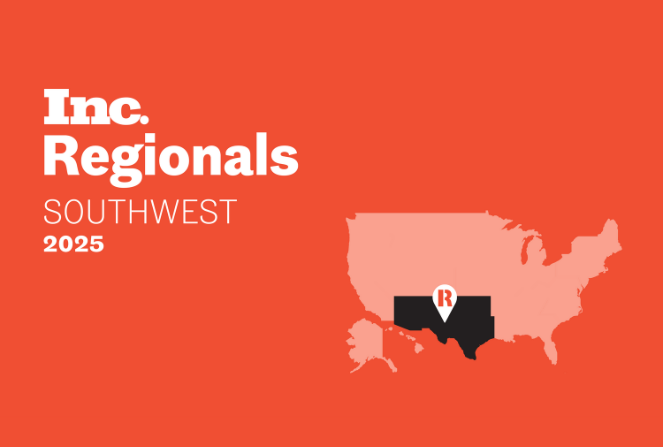Training your management staff is one of the biggest challenges that restaurant owners face. And it’s not cheap: According to the National Restaurant Association, hiring and training new management can cost a business $15,000.
That’s a lot of money invested in restaurant management training — with no guarantees your new managers will stay.
Creating a restaurant manager training plan that’s effective and repeatable is worth the extra time and resources to ensure your managers are successful and engaged in their role — and that they’ll stick around.
Read on to get best practices and tips for implementing or revamping your restaurant manager training plan.
Why a restaurant manager training plan is important
Of all the staff in your restaurant, managers have the largest impact on your operations and guest experience. Managers are responsible for the efficiency and engagement of your staff, the quality of your food, your financials, and guests’ overall satisfaction.
If your restaurant management training program fails to address any of these items (or other key facets of your daily operations), it could affect the quality of your business in the following ways:
- Inefficient staff: If your managers don’t get quality, consistent training, they’ll lack the tools to make the rest of your staff operate efficiently. This will permeate all other areas of your operations.
- Lower revenue: Inefficient managers and poorly-trained staff lead to lower food sales, higher product costs, and reduced profits. Failing to adequately train your managers is bad for your bottom line.
- Higher employee turnover: Inadequate or ineffective restaurant management training programs have been linked directly to higher turnover – not just of managers, but of other employees as well. Considering the cost to hire new employees, you can’t afford not to keep the employees you have.
How to create a restaurant manager training plan
Creating a restaurant manager training plan isn’t something that you can do alone or overnight. You need to get buy-in from employees and investors, identify existing processes and values, define your expectations, and codify aspects of your operations that may exist only in your head.
Here are some of the key steps to generating effective restaurant management training:
Get buy-in from stakeholders
As an owner or operator, you can’t be the only person structuring the training plan. You need to get input and buy-in from upper-level stakeholders like investors and co-owners in addition to employees and managers themselves.
Identify existing training material (if any)
Before you start generating everything from scratch, check to see if there is any existing material that can be updated. Documents and best practices may not be centralized, but there may be bits and pieces in different areas that you can compile. Evaluate it for accuracy and update as necessary.
Define your business values
As you start putting materials together, make sure your core values and mission statement are running themes throughout your program. Manager training is your opportunity to instill these values in some of your most important representatives in the restaurant – to explain why you’re passionate about what you do.
Set clear expectations
Outline for your managers in very clear terms what you expect from them. If you have high expectations, your managers will take pride in their jobs. If expectations are low, your staff will struggle not to trip over a low bar.
Help build interpersonal skills with customers
Your managers should develop a rapport with customers. They should keep track of common complaints and make sure they’re addressed. Ensure your managers are able to listen to feedback with an empathetic ear and respond calmly and reasonably. If your customers have a good relationship with your managers, they’re more likely to forgive your off days, and even more likely to compliment you on your good ones. This will improve your reputation and turn your customers into one of your most effective marketing tools.
Define operational standards
Though your managers are in the hospitality business, they need to understand the technical aspects of your industry, too. That means they should know the inner workings of your establishment like the back of their hand. Whether it’s inventory management, company financials, staffing, or facilities maintenance — your managers should be keeping an eye on problems that could negatively impact employees or customers.
Build in a feedback loop
When we think about training, it’s easy to focus on the flow of information from owners and stakeholders to managers, but it’s also important for trainees to have an opportunity to ask questions and provide feedback. Management training itself is an operational aspect of your business to be codified and improved over time. So, make sure your training program includes standards and processes for whom your managers should approach with questions or ideas for how to make both training and other parts of your business more effective.
What to include in a restaurant manager training plan
Management training plans need to include all aspects of your best practices. Any good restaurant manager training program should include most or all of the following:
- Food safety and food waste policies
- Workplace safety practices and insights
- Cash management overview, including banking practices
- Employee tip policies and disbursement practices
- Procurement process for supplies and equipment
- Inventory management
- Explanations for running and analyzing key reports
- Training on key equipment
- Tutorials on any technical systems, including POS systems
- Alcohol handling/service
- Steps for hiring, training, and managing new hires
- Employee conflict management
- Customer service
- Restaurant marketing (e.g., oversight of social media, online reviews, etc.)
Continuing education for restaurant managers
Of course, there’s plenty more to learn when it comes to developing an effective and efficient restaurant management training program. If you’re looking for more insights or inspiration, here are some other resources that will help you craft a solid new training program:
- Restaurant Management Training: What You Need to Know
- How to Create the Ultimate Restaurant Program Training Mix
- Penn Foster’s Hotel and Restaurant Management Training
- 14-Step Guide: How To Create A Restaurant Employee Handbook
Your managers are the lifeblood of your restaurant. They are an extension of your values, brand, and vision, which they pass down to your staff. To make sure they are living up to your expectations, you must hold them to the highest standards.
Because of the importance of effective management to your establishment, your operations, your customers, and your profits, your restaurant training program needs to be as engaging and informative as possible. This is your chance to institutionalize best practices and make sure your managers represent you well in their dealings with your staff and customers.










